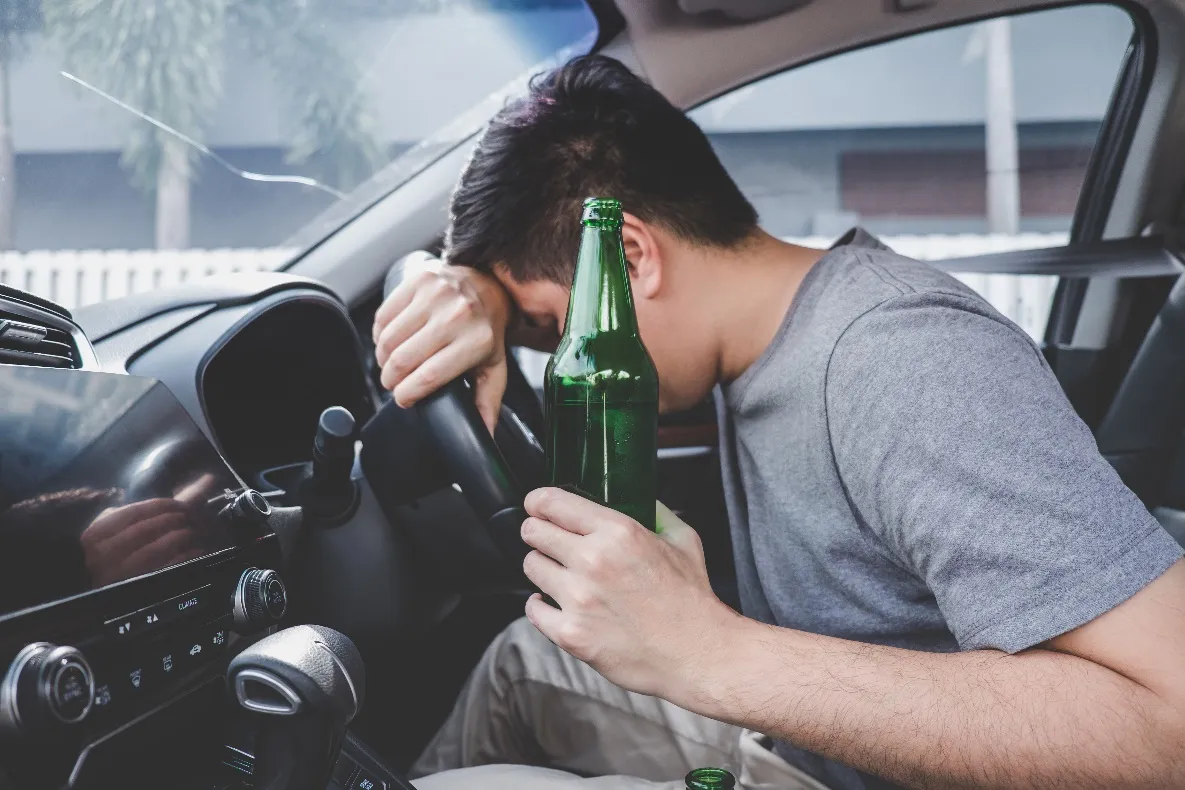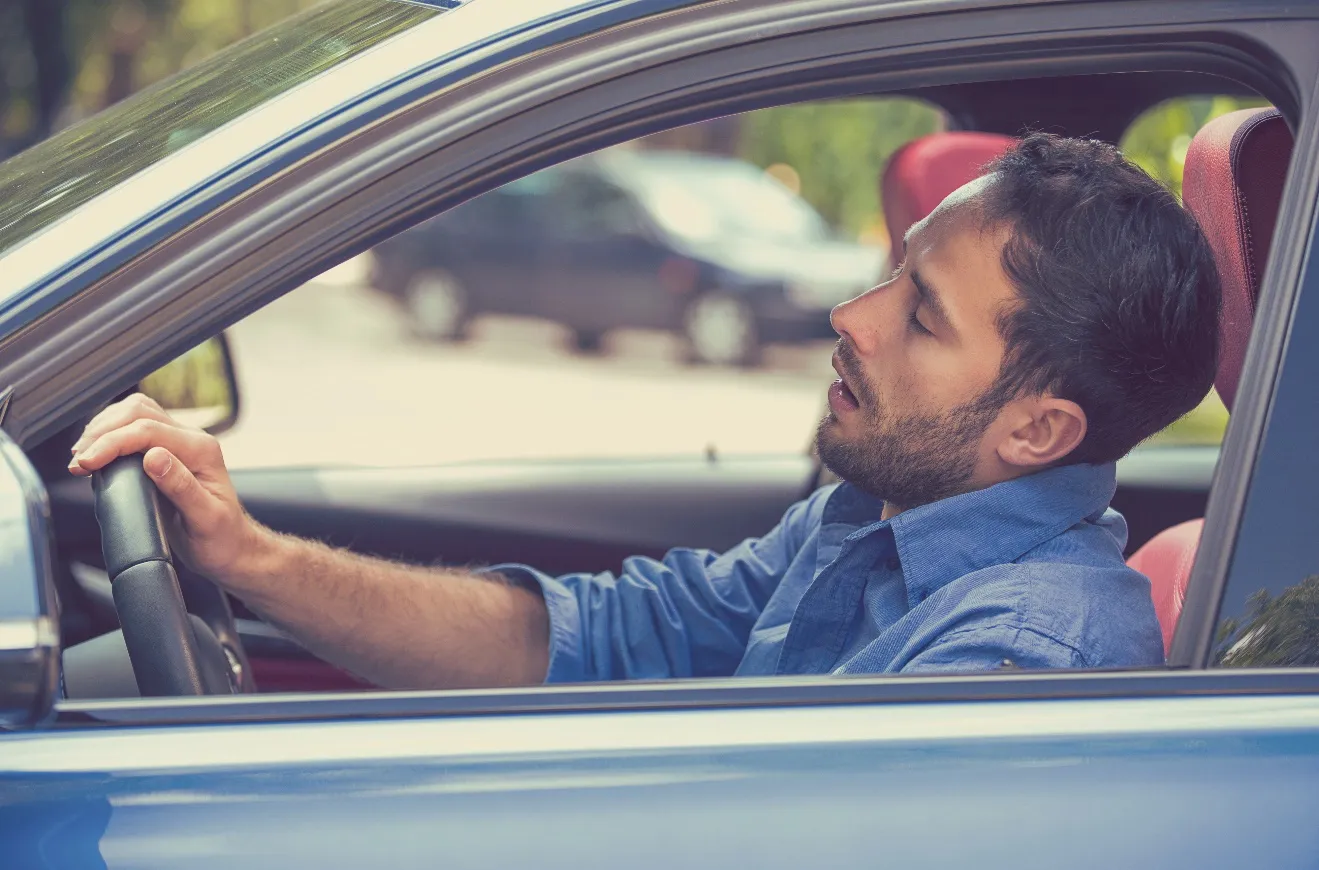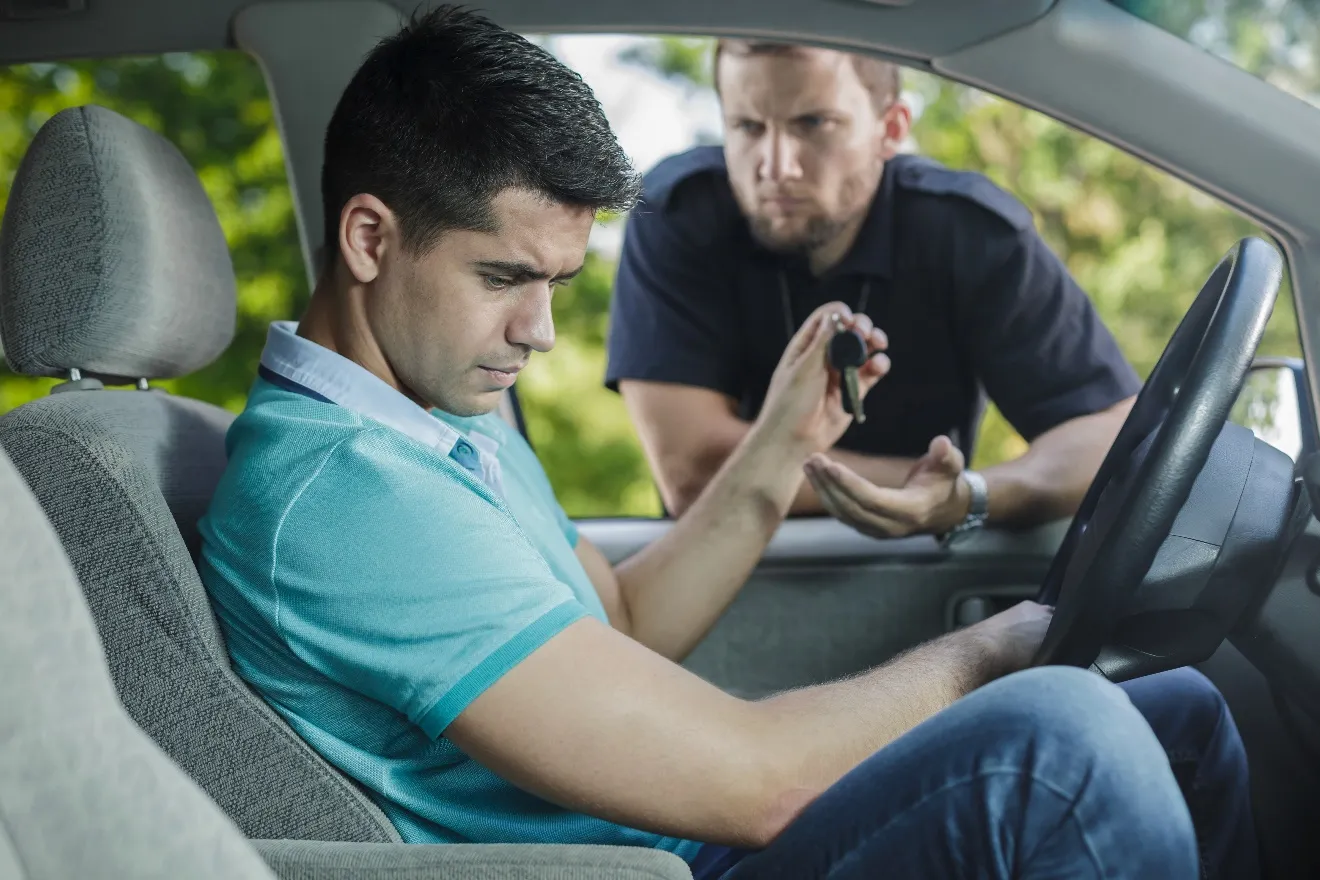Accusation of care and control of a vehicle while intoxicated: how to defend yourself with a lawyer?
Drunk driving is not only illegal when driving a vehicle.
The Criminal Code also prohibits drivers from being behind the wheel of their car if they are intoxicated. This is what is known as the offence of “care and control of a vehicle while intoxicated”!

A drunk driver can be targeted by such a charge even if he has not started the engine, and even if the vehicle was at a complete stop. Are you the target of such a charge related to drunk driving? Do not delay in aligning yourself with a competent lawyer to defend you.
duicanada.lawyer explains in detail the charge of care and control, and we refer you free of charge to a lawyer to represent you. There is absolutely no obligation on your part!
What is a charge of care and control of a vehicle while intoxicated?
The Criminal Code defines the offence of care and control of a vehicle as being responsible for that same vehicle while impaired by alcohol. The driver must therefore monitor the vehicle and assume a certain mastery of it and its accessories.
The “classic” example of this offence is that of the drunk driver who fell asleep behind the wheel of his parked vehicle instead of calling a taxi (or while waiting for one). It is not even necessary for the vehicle’s engine to be running to be in the presence of a care and control offence.
Furthermore, the law provides that a person who occupies the driver’s seat is presumed to have care and control of the vehicle, which complicates the defence of the drunk driver.
Here are some examples of situations that can constitute a charge of care and control of a vehicle while intoxicated:
-
A person falls asleep behind the wheel of a stationary vehicle while intoxicated.
-
Sleeping or waiting on the back seat of a car while intoxicated.
-
Being outside the vehicle while intoxicated, having care and control of the vehicle.
To be found guilty of this offence, there must be a realistic risk that the vehicle will be set in motion, and that it poses a danger.
The fact of having started the engine, having the keys in one’s possession and other similar acts are signs that the driver is actually assuming care and control of the vehicle.
But not so fast! A care and control situation is often in a grey area, and there are defence means to get rid of such a criminal charge.
What defences can be raised against a care and control offence?
The mere fact that a person is sitting in their vehicle in the driver’s seat while intoxicated creates a presumption of care and control. But this presumption is not always sufficient to obtain a conviction, since the accused can invoke a legitimate defence.

Here are the main defences invoked against a charge of care and control of a vehicle while intoxicated!
The alternative plan defence
A driver who invokes the alternative plan defence may be exonerated if he demonstrates that he used the vehicle as a temporary refuge while waiting for a taxi or other means of transport.
For example, a person who realizes his inability to drive and waits for transport in his vehicle could prove an alternative plan. This plan must be well established, and proven by concrete elements.
The involuntary intoxication defence
A criminal offence requires an intention on the part of the offender. The driver who is involuntarily intoxicated and against his will can raise a defence of involuntary intoxication against his charge of care and control.
However, this is a question of fact that will have to be demonstrated in light of the circumstances of the offence.
The defence of absence of risk of starting the vehicle
It is possible to get rid of a charge of care and control if it is proven that there was no risk of starting the vehicle. For example, a driver asleep on the back seat of a vehicle and whose keys are not in the ignition could successfully invoke the absence of risk of operating the automobile.
Which of these defences will extricate you from the clutches of justice? Only a lawyer specialized in drunk driving matters can tell you!
It is the facts specific to your offence that dictate the appropriate defence to raise, and that is why it is essential that a lawyer quickly reviews your file to maximize your chances of success.
The consequences related to a charge of care and control in Quebec!
The consequences resulting from a care and control offense are very similar to those of a drunk driving charge. Hefty fines and a criminal record are part of the sentences to anticipate in case of a guilty verdict!

As a charge of care and control can have serious consequences, here are the sentences provided for such an offense!
| 1st offense (care and control/Drunk driving) | Criminal record Minimum fine of $1000 Driving ban of 12 months |
|---|---|
| 2nd offense (care and control/Drunk driving) | Minimum imprisonment of 30 days |
As soon as you are arrested by the police, your license will also be suspended for a period of 90 days.
Even before you are found guilty in court, the SAAQ will impose an automatic license suspension of 90 days if you are arrested for a care and control offense.
It is impossible to derogate from this suspension or to obtain a restricted license, unless you challenge the SAAQ’s decision before the Administrative Tribunal. Success stories for such cases are rare, however!
A charge of care and control will also require you to pay fees.
If you are found guilty, you may be required to participate in the Impaired Driving Risk Assessment and Reduction Program, which comes with fees ranging from $344 to $816 depending on the assessment required by the SAAQ.
Would you like to obtain a restricted license? The installation of an alcohol ignition interlock device may be required, which comes with monthly fees and installation costs that will exceed a few hundred dollars.
Such consequences will only be imposed if you are found guilty - Hurry up and find a competent lawyer to defend you!
Why contact a lawyer specialized in drunk driving matters quickly?
Drunk driving offenses have their own subtleties, and require a certain expertise on the part of the lawyer. As absolution is not a possible sentence for impaired driving cases, it is essential to obtain an acquittal or the dropping of charges.

And lawyers specialized in drunk driving matters are best placed to help you. To defend you against a charge of care and control, your lawyer is able to:
Determine the right defense
Will you plead the defense of no risk, voluntary intoxication, or the implementation of an alternative plan? Only a competent lawyer will be able to answer this question!
Analyze the facts and your chances of success
Not all care and control situations come with the same chances of success. The lawyer’s first task is to analyze the facts of your story, and determine whether it is better to negotiate a plea with the prosecutor rather than face a trial.
Analyze the evidence collected by the police
The police are subject to specific rules when they intercept a drunk driver. Non-compliance with procedures, particularly with regard to the breath sample, can constitute a defense leading to an acquittal or the dropping of charges.
Defend your interests in court
When the trial route is inevitable, your criminal lawyer will defend your interests before the judge, and try to obtain an acquittal by invoking the strongest defense available to you.
The role of the duicanada.lawyer platform is precisely to find the best lawyer to defend you against a charge of care and control or drunk driving.
To get in touch with such a professional for free, all you have to do is fill out our form, and we will take care of finding your lawyer!
Find the right lawyer to defend you against a charge of care and control!
Being found guilty of a care and control offense with impaired faculties will leave you with a criminal record, a hefty fine, a suspended driver’s license and an alcohol ignition interlock device…
Don’t wait to be victim of such a punishment without defending yourself; contact a lawyer specialized in drunk driving offenses.
Our role is precisely to find such a professional in criminal law to represent you.
Fill out our form in less than 2 minutes, and we will take care of referring you to the right lawyers, without any commitment!

